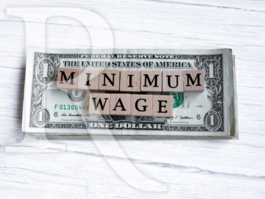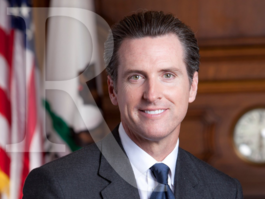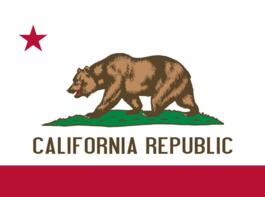Loose Change and Propositions
A Commentary By Debra J. Saunders
Former Gov. Pete Wilson is the only politician to have beat Jerry Brown in an election. In 1982, Wilson, then-San Diego mayor, trounced Brown, then California's big-foot governor, in the race for U.S. Senate 51 to 45 percent. Now Wilson serves as Meg Whitman's campaign chairman. On Thursday, he told me not to believe polls that show Whitman losing by as much as double digits. Whitman, he says, has a real shot at beating Brown.
Polls that show Whitman losing, Wilson said, "are greatly underestimating the enthusiasm on the part of the Republicans and pretty much a lack of it on the other side."
And: "I think the undecided are going to decide in her favor."
If the polls are right and Brown does win, the big question is: Will Brown conclude that he won because he ran a savvy campaign, or that he won largely because Whitman spent $161 million on a dysfunctional campaign?
Maybe both.
Darry Sragow, a former Democratic strategist, is interim director of the Los Angeles Times/University of Southern California poll that shows Brown ahead of Whitman with 52 percent to her 39 percent of the vote. (Wilson has real issues with that poll.) While Sragow refused to call the race, and noted "the unexpected sometimes happens," he believes that Whitman frittered away her credibility during the campaign.
But also, "Jerry Brown won in one very, very important way," Sragow noted. Brown and campaign manager Steve Glazer withstood months of pressure from Democratic operatives who "were beating Jerry on the head and shoulders for not engaging and not spending money."
In the punditry biz, we have a tendency to overplay the importance of campaigns. In California, 44 percent of registered voters are Democrats and 31 percent are Republicans. In a wave year that sends Republicans to the polls while Democrats stay home, the tide could propel some Republicans into statewide office. Any other year, the Democratic primary winner has to really mess up to lose in November.
Now on the propositions ...
Yes on Proposition 19. The establishment spin goes something like this: Even if marijuana legalization makes sense, Proposition 19 is so poorly written that voters must reject it.
Bunk. The measure is tightly written to give state and local governments unimpeded authority in deciding whether to allow the sale of marijuana, and if so, how to tax and regulate it.
There won't be a better bill. Marijuana prohibition enables and enriches criminal cartels and gangs. Californians have a chance to end the madness, and voters should grab it.
Yes on Proposition 20, No on Proposition 27. Right now, Sacramento has authority to draw lines for California's 53 seats in the House of Representatives. In sum, the status quo has allowed politicians to pick their voters. In 2008, voters approved a good-government measure, Proposition 11, to put Assembly and state Senate redistricting in the hands of a new Citizens Redistricting Commission. Proposition 20 would put congressional seats under the new panel's jurisdiction.
Proposition 27 would kill the new Citizens Redistricting Commission before it even gets started. If you think politicians don't have enough arrogance and power, then vote yes.
No on Proposition 21. The measure is bound to appeal to voters, as it would add $18 to vehicle license fees and guarantee that the proceeds go to state parks. I get the appeal, but this measure constitutes ballot-box budgeting -- it's the sort of money grab for a popular service that has warped the budgeting process in Sacramento.
No on Proposition 22. See above, but with less popular beneficiaries, like redevelopment agencies.
Yes on Proposition 23. Don't be fooled by Gov. Arnold Schwarzenegger. This measure isn't about overturning clean air regulations -- which other state laws protect. A state with an unemployment rate of 12.4 percent cannot afford the fees and regulations that will follow when California's new global warming law (AB32) takes effect.
No on Proposition 24. See above, but in this case, the so-called "Tax Fairness Act" would restore taxes that give employers reasons not to do business in California.
No on Proposition 25. Proponents argue that the measure would allow a majority of state lawmakers to pass a state budget -- while preserving the mandate for a two-thirds vote to raise taxes. Then why would public employee unions push for this measure?
No on Proposition 26. The ballot measure would require a two-thirds approval not of taxes, but fees -- which traditionally have required a majority vote because there is a relationship between the service and the charge. At The San Francisco Chronicle Editorial Board endorsement interview, proponents utterly failed to demonstrate the need for changing the system. Consider this a special-interest grab in search of a nonexistent cause.
COPYRIGHT 2010 CREATORS.COM
See other Political Commentary .
See Other Commentary by Debra J. Saunders.
Views expressed in this column are those of the author, not those of Rasmussen Reports.
Rasmussen Reports is a media company specializing in the collection, publication and distribution of public opinion information.
We conduct public opinion polls on a variety of topics to inform our audience on events in the news and other topics of interest. To ensure editorial control and independence, we pay for the polls ourselves and generate revenue through the sale of subscriptions, sponsorships, and advertising. Nightly polling on politics, business and lifestyle topics provides the content to update the Rasmussen Reports web site many times each day. If it's in the news, it's in our polls. Additionally, the data drives a daily update newsletter and various media outlets across the country.
Some information, including the Rasmussen Reports daily Presidential Tracking Poll and commentaries are available for free to the general public. Subscriptions are available for $4.95 a month or 34.95 a year that provide subscribers with exclusive access to more than 20 stories per week on upcoming elections, consumer confidence, and issues that affect us all. For those who are really into the numbers, Platinum Members can review demographic crosstabs and a full history of our data.
To learn more about our methodology, click here.



